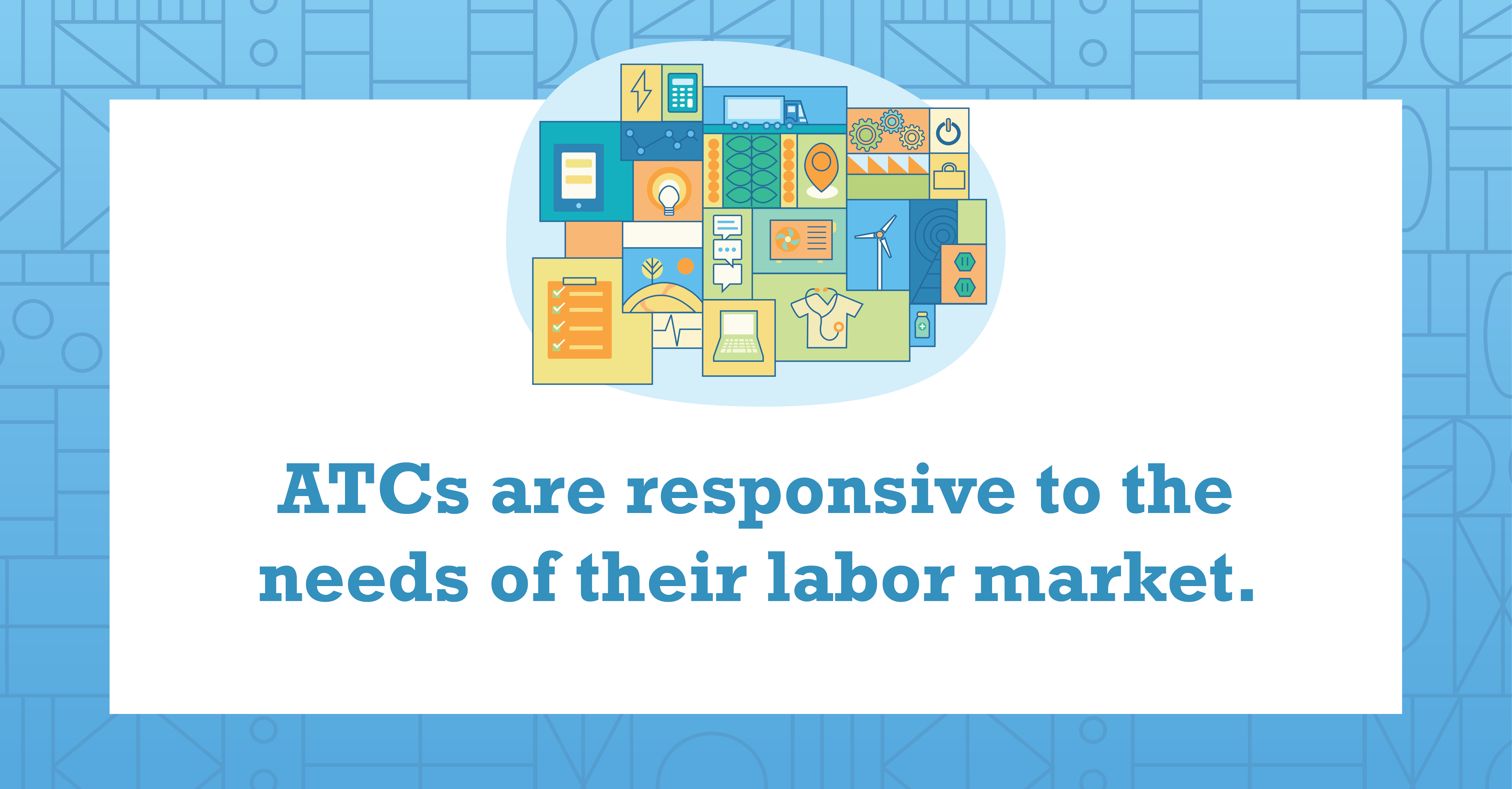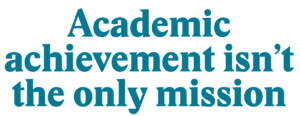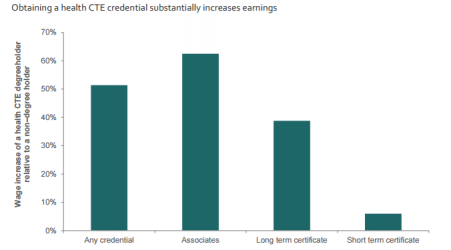Advance CTE’s “Research Round-Up” blog series features summaries of relevant research reports and studies to elevate evidence-backed Career Technical Educational (CTE) policies and practices and topics related to college and career readiness. This month’s blog highlights the impact that micro-credentials have had on different populations of learners in rural postsecondary institutions. Ensuring that each learner’s skills are counted, valued, and portable supports Advance CTE’s vision for the future of CTE where each learner has access to the means to succeed in the career of their choice.
 In their 2022 report, Micro-Credentials for Social Mobility in Rural Postsecondary Communities: A Landscape Report, Digital Promise explored the impact of earning micro-credential attainment on individuals’ transitions into the workforce, promotions, and economic outcomes (e.g., salary increase, prioritizing learners impacted by poverty). Micro-credentials are digital certifications that verify an individual’s competence with a skill or set of skills. They can be earned asynchronously and stacked together to demonstrate readiness for in-demand jobs. Micro-credentialing is growing in popularity as state CTE leaders consider expanding their credential spectrum to include micro-credentials as a cost-effective option to connect learners with certifications for their skills.
In their 2022 report, Micro-Credentials for Social Mobility in Rural Postsecondary Communities: A Landscape Report, Digital Promise explored the impact of earning micro-credential attainment on individuals’ transitions into the workforce, promotions, and economic outcomes (e.g., salary increase, prioritizing learners impacted by poverty). Micro-credentials are digital certifications that verify an individual’s competence with a skill or set of skills. They can be earned asynchronously and stacked together to demonstrate readiness for in-demand jobs. Micro-credentialing is growing in popularity as state CTE leaders consider expanding their credential spectrum to include micro-credentials as a cost-effective option to connect learners with certifications for their skills.
While common themes emerged across the four rural micro-credentialing initiatives evaluated in the report, overall impressions were that micro-credentials can — and in some cases, do — lead to job promotions, higher wages, and an increase in self-confidence for rural learners.
Research Objectives
To better understand their impact, researchers selected four rural micro-credentialing initiatives that are being used to create career pathways for rural learners. The report focused specifically on outcomes for Black, Latinx, and indigenous populations, as well as women.
A primary objective of this project was to identify existing and emerging instances of micro-credentials in rural industry, education, and training initiatives to inform the field about the value and use of micro-credentials as a tool for equitable economic recovery. Additionally, this research sought to understand how micro-credentials are being leveraged to reduce systemic biases, signal worker readiness to employers and promote social mobility in rural communities.
The four communities featured in this work include:
- Kentucky Valley Education Cooperative
- Savannah Technical College/Technical College System of Georgia
- Tennessee State University’s Center of Excellence for Learning Sciences
- The University of Maine System.
This report features both qualitative and quantitative data collected through focus groups and individual interviews, program enrollment, retention, credential attainment, and salary outcomes.
Learner Perceptions of Micro-credentials
 Overall, micro-credential earners interviewed for this study perceived their experiences favorably and believed that efforts to earn such credentials would result in economic mobility through higher education and income levels. Earners indicated that micro-credentials allowed for more timely feedback and that each credential motivated earners to continue their progression. While stakeholders remain optimistic about the value of micro-credentials, many earners are still unsure of how earning micro-credentials may or may not impact their long-term employment trajectories.
Overall, micro-credential earners interviewed for this study perceived their experiences favorably and believed that efforts to earn such credentials would result in economic mobility through higher education and income levels. Earners indicated that micro-credentials allowed for more timely feedback and that each credential motivated earners to continue their progression. While stakeholders remain optimistic about the value of micro-credentials, many earners are still unsure of how earning micro-credentials may or may not impact their long-term employment trajectories.
Program Design Considerations
As a result of their analysis, five themes emerged across the micro-credential sites:
-
Partnerships
- All initiatives emphasize a need for developing regional, sustainable partnerships across sectors and increasing efforts to engage communities of color. Successful initiatives included universities, adult education, prison education, and reentry programs and employers.
- State-level example: In Tennessee, several organizations and networks are working to promote online learning and micro-credentialing for early childhood education professionals across the state.
-
Employer Recognition
- Program administrators and learners want to ensure that prospective employers recognize and value skills demonstrated through micro-credentials.
- State-level example: In Georgia, the way that program leaders build relationships with employers ensures a quick transition into the workforce for those completing the 8-week program to earn their micro-credentials.
-
Program Sustainability
- As the three university-based pilots are in the process of scaling up into more robust statewide programs, efforts to maintain programming were thought to depend on several factors:
- A desire for more robust data collection methods and data interoperability across multiple institutions.
- Administrators also recognized the need to improve messaging to potential learners, employers, and funders about the value of micro-credentials.
- As the three university-based pilots are in the process of scaling up into more robust statewide programs, efforts to maintain programming were thought to depend on several factors:
-
Program Appeal/ Feasibility
- Across all initiatives, program appeal was influenced by affiliations with the respective educational institutions. Perceived use and value of micro-credentials were the most important reasons for motivation for program developers and earners.
- State-level example: In Kentucky, some teachers earning micro-credentials were able to increase their rank and wages.
-
Potential for Learner/ Higher Education Attainment
- An ability to earn new skills, obtain credit for prior knowledge, and access varied content were significant factors of the perceived value of micro-credentials among rural learners. Earners perceive micro-credentials as beneficial to include on resumes given that they may set them apart from other candidates.
- State-level example: In Maine, earners, which included women in state correctional facilities, sought to ensure that micro-credentials were readily transferable to college credit.
Additional Resources
To learn more about stackable credentials, visit the Learning that Works Resource Center.
- CTE Without Borders Policy Playbook, Part 3: Building the Infrastructure for Expanded Access
- This resource, developed in partnership with the Southern Regional Education Board and the Western Interstate Commission for Higher Education, supports state and local leaders in the development of policies and programs that advance the expansion of CTE and work-based learning within and across states.
- Embedding Credit For Prior Learning in Career Pathways
- This toolkit was developed to provide state and local guidance on the design and implementation of high-quality CPL policy.
- Advance CTE’s CTE on the Frontier Series
- This series of briefs and accompanying tools highlight promising practices around the most pressing challenges to expanding access to high-quality CTE pathways in rural communities.
Amy Hodge, Policy Associate



 Lawmakers Agree to Meet Next Week on Debt Ceiling
Lawmakers Agree to Meet Next Week on Debt Ceiling The transformative workforce changes resulting from the COVID-19 (coronavirus) pandemic have made it more urgent than ever for states to have a comprehensive strategy for reskilling and upskilling that unites stakeholders across education, workforce development and economic development. Advance CTE has been
The transformative workforce changes resulting from the COVID-19 (coronavirus) pandemic have made it more urgent than ever for states to have a comprehensive strategy for reskilling and upskilling that unites stakeholders across education, workforce development and economic development. Advance CTE has been  The
The  Fewer than half of public school parents (47 percent) expect their child to enroll in a four-year college full time. Other parents expected their child to enroll in two-year colleges or vocational programs, while others expect their students will enroll in postsecondary training part-time while also working. These findings indicate that parents are thinking deliberately and strategically about their students’ futures in the real world.
Fewer than half of public school parents (47 percent) expect their child to enroll in a four-year college full time. Other parents expected their child to enroll in two-year colleges or vocational programs, while others expect their students will enroll in postsecondary training part-time while also working. These findings indicate that parents are thinking deliberately and strategically about their students’ futures in the real world.  Contributing to a growing body of research on the economic benefit of industry credentials, the Public Policy Institute of California last month released a
Contributing to a growing body of research on the economic benefit of industry credentials, the Public Policy Institute of California last month released a